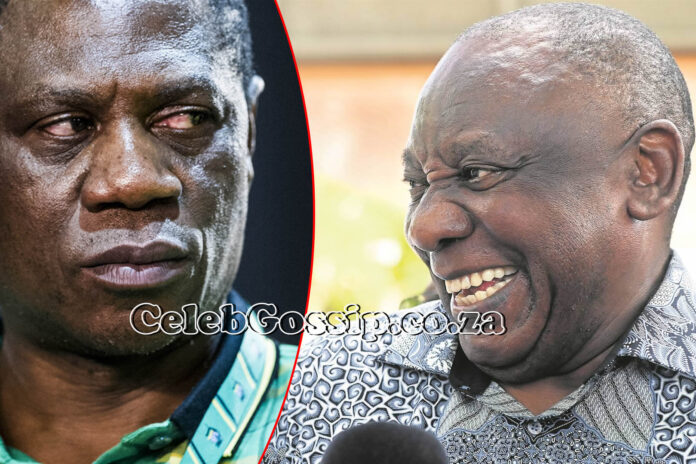In an astonishing turn of events, an undisclosed agreement has emerged, suggesting a clandestine coalition between the Democratic Alliance (DA) and African National Congress (ANC) President Cyril Ramaphosa after the 2024 elections. This shocking revelation, which has sent shockwaves through the political landscape, aims to form an informal alliance that would exclude the Economic Freedom Fighters (EFF) and Jacob Zuma's Umkhonto weSizwe Party from assuming positions of power.
While a formal coalition between the ANC and DA could potentially be politically damaging for both parties, this covert agreement, if true, unveils a carefully orchestrated dance between the two political heavyweights. Confidential sources within the DA have shed light on the nature of this alleged agreement, offering a glimpse into the intricate web of power dynamics shaping South Africa's political future.
The key components of the agreement, as disclosed by these sources, are as follows:
- The DA will support the ANC in forming a government and collaborate with them on critical matters such as the election of the president and the passing of the budget.
- Cyril Ramaphosa is set to be re-elected as President, solidifying his position at the helm of the nation.
- Paul Mashatile, a prominent figure within the ANC, is expected to assume the role of Deputy President, bringing his wealth of experience and political acumen to the forefront.
- The ANC will retain all ministerial and deputy ministerial positions, ensuring continuity and stability within the government.
- The DA will assume the prestigious role of Speaker of the National Assembly, a position that grants them significant influence and control over parliamentary proceedings.
- The DA will also hold the chairmanship of the National Council of Provinces (NCOP), further cementing their role in shaping legislative decisions.
- Notably, the DA will have a considerable say in the composition of various portfolio committees, including the influential Standing Committee on Public Accounts (SCOPA), which holds the power to scrutinize government expenditure and combat corruption.
However, the most intriguing aspect of this alleged agreement involves a series of political maneuvers designed to secure the DA's support. According to insider accounts, these maneuvers include the arrest of Deputy President Paul Mashatile on corruption charges within three months—an unexpected twist that adds a layer of complexity to the political landscape. Furthermore, ANC Chairperson Gwede Mantashe and other NEC members who oppose the coalition will supposedly be neutralized using the BOSASA corruption scandal, a strategic move that the DA has reportedly agreed to bring to the forefront in parliament.
While the DA and ANC are set to meet formally to discuss coalition talks, the revelation of this secret deal has already sent shockwaves through South African politics. The ANC has called a special NEC meeting to deliberate on coalition options, emphasizing Cyril Ramaphosa's determination to exclude the EFF and MK Party from wielding significant influence in the National Assembly, as well as in Gauteng and KwaZulu-Natal provinces. This strategic alliance, as insiders claim, allows Ramaphosa and the ANC to maintain stability while consolidating power.
A separate source within the DA corroborated these discussions, highlighting the primary aim of preventing the radical policies of the EFF and the disruptive influence of the MK Party from gaining traction in national and provincial governments. By joining forces with Ramaphosa, the DA intends to ensure a semblance of stability in the political landscape, protecting South Africa from potential upheaval.
As the nation anxiously awaits further developments, the intricacies of this secret deal between the DA and Ramaphosa continue to unfold. The political landscape is undoubtedly a complex terrain, where alliances and power dynamics blur the lines of traditional party rivalries. While some may question the motives and consequences of such a covert coalition, others argue that it represents a pragmatic approach to governance—a careful balancing act aimed at steering South Africa towards stability and progress.
In the coming days, as coalition talks progress and the nation grapples with the implications of this revelation, one thing is certain: the political landscape of South Africa will never be the same again.










